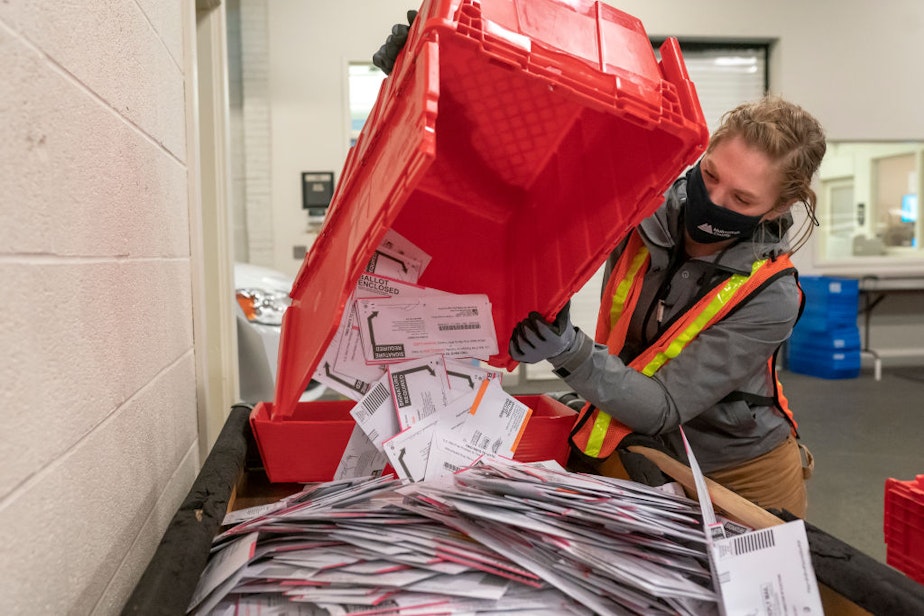Why Voters Are Rejecting The War On Drugs

Wherever the war on drugs was on the ballot this year, the war on drugs lost. In Oregon, Arizona, Montana, New Jersey, South Dakota and Mississippi, too, voters approved measures to legalize recreational or medical marijuana. We discuss the drug-related ballot measures that passed on Election Day and the shift in American drug policy.
Guests
Beau Kilmer, director of the RAND Drug Policy Research Center. Author of “The Future of Fentanyl and Other Synthetic Opioids.” (@BeauKilmer)
Kassandra Frederique, executive director of the Drug Policy Alliance. (@Kassandra_Fred)
Haven Wheelock, syringe exchange coordinator of Outside In. (@OutsideInPDX)
From The Reading List
New York Times: “In the Pandemic, a Shifting Ballot Debate on Legalizing Drugs” — “Oregon has an addiction problem. Pockets of rural poverty, chronic homelessness and cities with lots of young people have given the state one of the highest rates of substance abuse in the nation. It is also, because there is so little money allocated to it, one of the toughest places to get treatment.”
The Marshall Project: “Will Drug Legalization Leave Black People Behind?” — “From the Pacific Northwest to the Deep South, drug legalization won big nationwide on Election Day. Under the first state law of its kind, people in Oregon soon won’t be arrested for possessing small amounts of drugs including heroin, meth and cocaine.”
Washington Post: “A Chicago suburb wants to give reparations to black residents. Its funding source? A tax on marijuana.” — “In Evanston, Ill., city officials are hashing out a plan for racial equity — with emphasis on the hash. As Illinois prepares to legalize recreational marijuana, the Chicago suburb has voted to tax the sale of cannabis — expected to generate hundreds of thousands of dollars each year — to fund race-based reparations for its black residents.”
Oregon Public Broadcasting: “Oregon becomes 1st state in the US to decriminalize drug possession” — “Oregonians made their state the first in the United States to decriminalize the personal possession of illegal drugs, including cocaine, heroin, oxycodone and methamphetamine.”
Marijuana Moment: “Every Single Marijuana And Drug Policy Ballot Measure Passing On Election Day Bolsters Federal Reform Push” — “Marijuana and drug policy reform swept across the board in Tuesday’s elections, giving advocates a major boost as they push to end federal prohibition.”
TIME: “Want to Win the War on Drugs? Portugal Might Have the Answer” — “When Gonçalo Fonseca was a child, he went to school near Casal Ventoso, a Lisbon neighborhood that also served as the biggest open-air drugs market in Europe. “I have the vivid memory of being a child and seeing someone shoot up in broad daylight,” the photographer says.”
NPR: “John Boehner Was Once ‘Unalterably Opposed’ To Marijuana. He Now Wants It To Be Legal” — “John Boehner has been known to enjoy the occasional adult beverage. He famously nicknamed his negotiations over raising the nation’s debt ceiling in 2011 the ‘Nicorettes and Merlot sessions.’ Nicorette because that’s what President Obama would chew during the talks. Merlot because that was the drink of choice for the former speaker of the House.”
This article was originally published on WBUR.org. [Copyright 2020 NPR]
